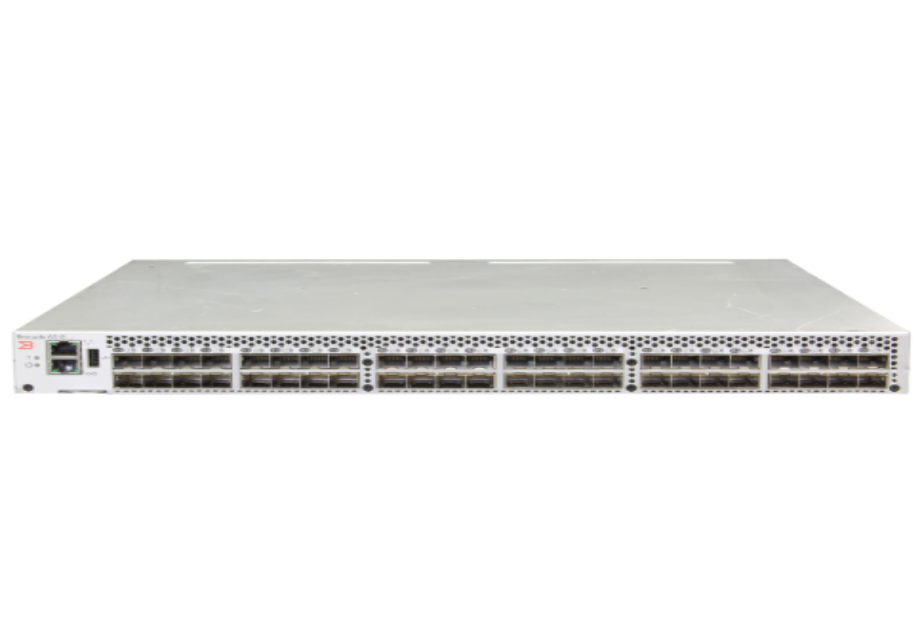The Brocade BR6510 is an advanced Fibre Channel switch designed for enterprise-level storage area networks (SANs) and high-performance environments. It offers robust features, scalability, and high availability, making it ideal for data centers and mission-critical applications. Here are the key specifications:
Brocade BR6510 Switch Specifications
-
Port Configuration:
-
Supports 16Gb, 32Gb, and 64Gb Fibre Channel ports.
-
Provides a scalable port configuration, ideal for growing storage needs.
-
-
Throughput:
-
High throughput, with capabilities supporting up to 1.2 Tbps, ensuring fast data transfer and minimal bottlenecks.
-
-
Performance:
-
Non-blocking architecture ensures maximum performance and efficiency.
-
Low-latency design, making it suitable for applications that require fast data processing, such as high-performance computing (HPC) and big data analytics.
-
-
High Availability & Redundancy:
-
Includes dual power supplies and redundant fan modules, ensuring reliability and uptime.
-
Features fast failover mechanisms to reduce downtime and ensure continuous network availability.
-
-
Management & Monitoring:
-
Fully compatible with Brocade Network Advisor for easy configuration and management.
-
Provides automation features to streamline deployment and reduce manual intervention.
-
-
Reliability:
-
Designed for 24/7 operation with an MTBF of millions of hours.
-
Advanced error detection and self-healing capabilities to minimize downtime.
-
-
Scalability:
-
Supports Virtual Fabric technology, enabling flexible and scalable SAN management.
-
Easily integrates with other Brocade solutions for larger SAN infrastructures.
-
-
Size:
-
1U rack-mounted design, optimized for space efficiency in data centers.
-
-
Power Requirements:
-
AC and DC power input options available, offering flexibility for various power configurations.
-
Use Cases:
-
Enterprise SANs for high-volume storage needs.
-
Virtualized data centers and cloud infrastructure.
-
Backup and disaster recovery solutions for mission-critical applications.
-
Big data and high-performance computing environments.















